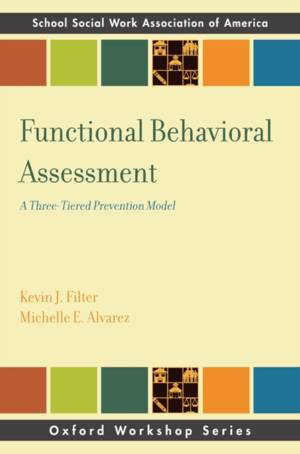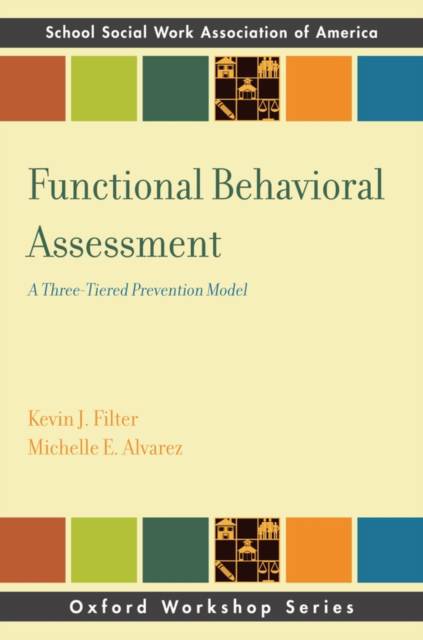
- Retrait gratuit dans votre magasin Club
- 7.000.000 titres dans notre catalogue
- Payer en toute sécurité
- Toujours un magasin près de chez vous
- Retrait gratuit dans votre magasin Club
- 7.000.0000 titres dans notre catalogue
- Payer en toute sécurité
- Toujours un magasin près de chez vous
85,45 €
+ 170 points
Description
Functional behavioral assessment (FBA) is an important element in developing effective behavior interventions in schools. By understanding how the environment predicts and maintains problem behavior, school social workers can change those environmental conditions and facilitate positive behavior. Although FBA is traditionally applied within the context of special education, it is relevant to supporting behavior of all students in a school. In this book, the authors explore how FBA can be applied in a three-tiered model of prevention and provide tools and case examples to facilitate application. This process is described as occurring within a team context wherein the school social worker serves as a facilitator and contributor with behavioral expertise. In Tier 1, FBA is applied to the behavior of all students in a school and leads to the development of school-wide behavior interventions that are intended to prevent students from developing more serious patterns of problem behavior. In Tier-2 FBAs, the behavior of at-risk students is assessed in an efficient manner to determine which available evidence-based interventions will be effective in improving their behavior. In Tier 3, FBAs involve extensive individual assessments of the conditions that maintain the problem behavior students with significant behavior problems. This book provides detailed information about conducting FBAs at each tier of prevention and reviews the process of developing interventions from the FBA information at each tier. As initiatives encouraging positive behavior support in schools proliferate, this book will help school social workers develop the skill set necessary to maintain their role as important contributors to student outcomes.
Spécifications
Parties prenantes
- Auteur(s) :
- Editeur:
Contenu
- Nombre de pages :
- 192
- Langue:
- Anglais
- Collection :
Caractéristiques
- EAN:
- 9780199764938
- Date de parution :
- 05-10-11
- Format:
- Livre broché
- Format numérique:
- Trade paperback (VS)
- Dimensions :
- 156 mm x 234 mm
- Poids :
- 272 g

Les avis
Nous publions uniquement les avis qui respectent les conditions requises. Consultez nos conditions pour les avis.






